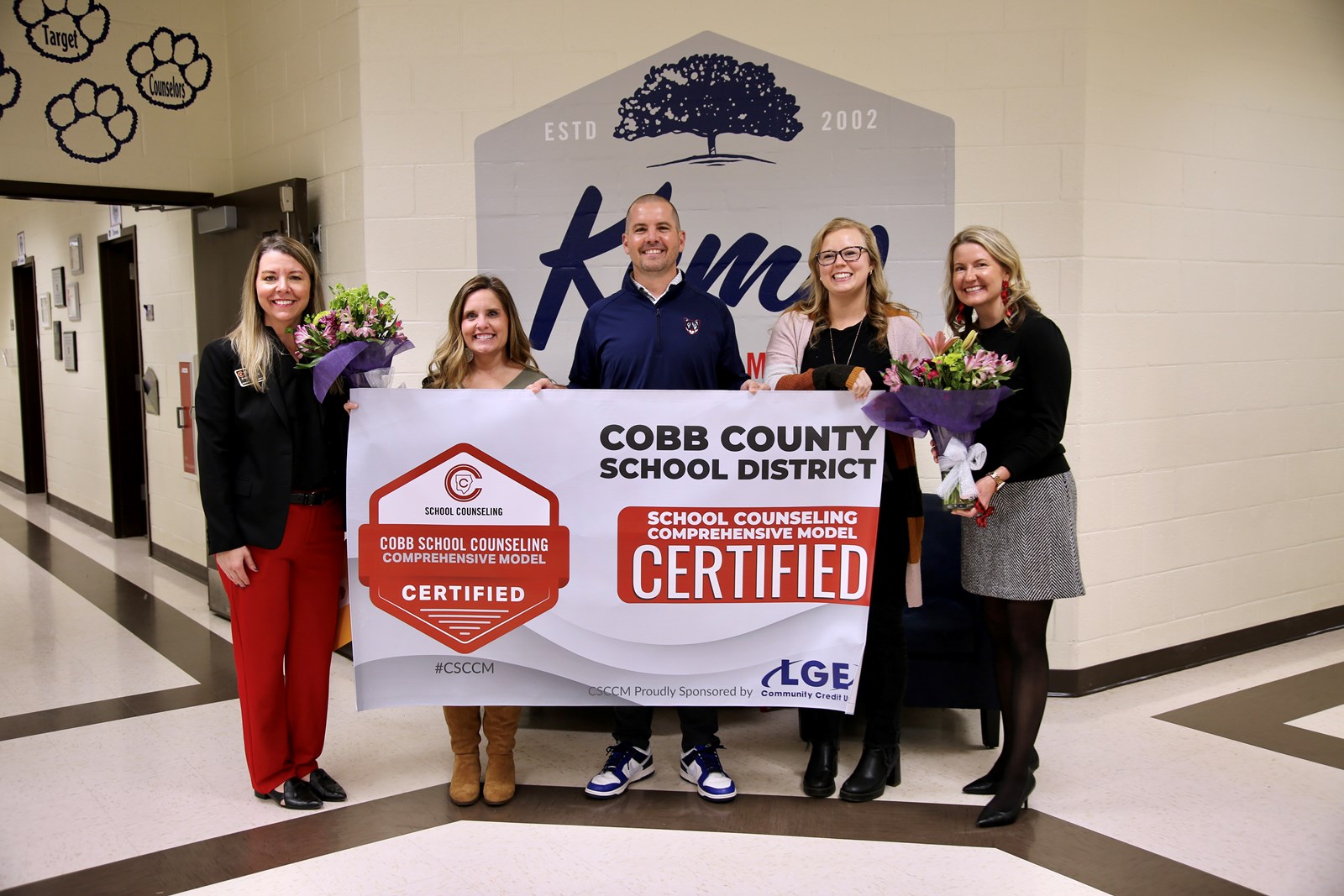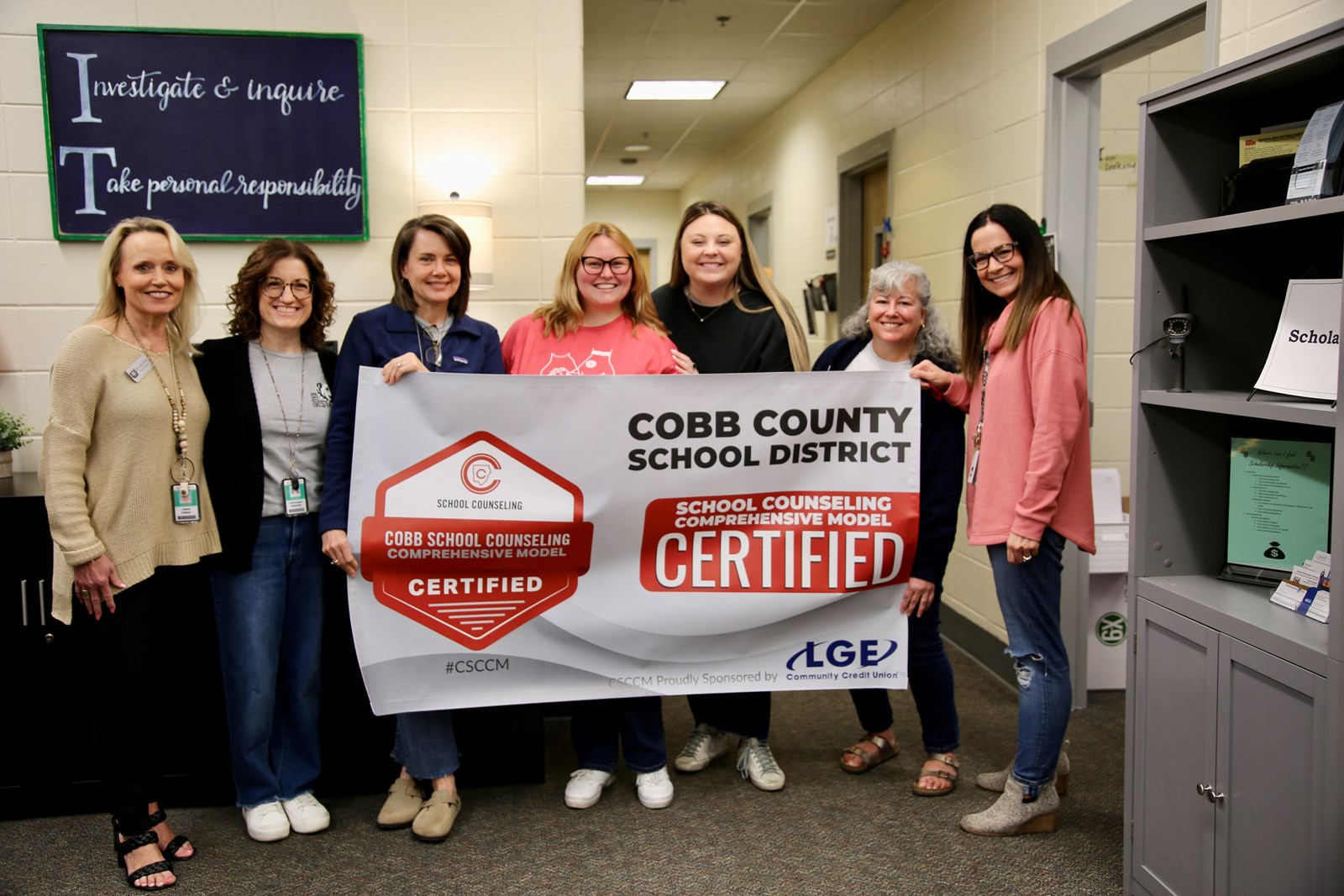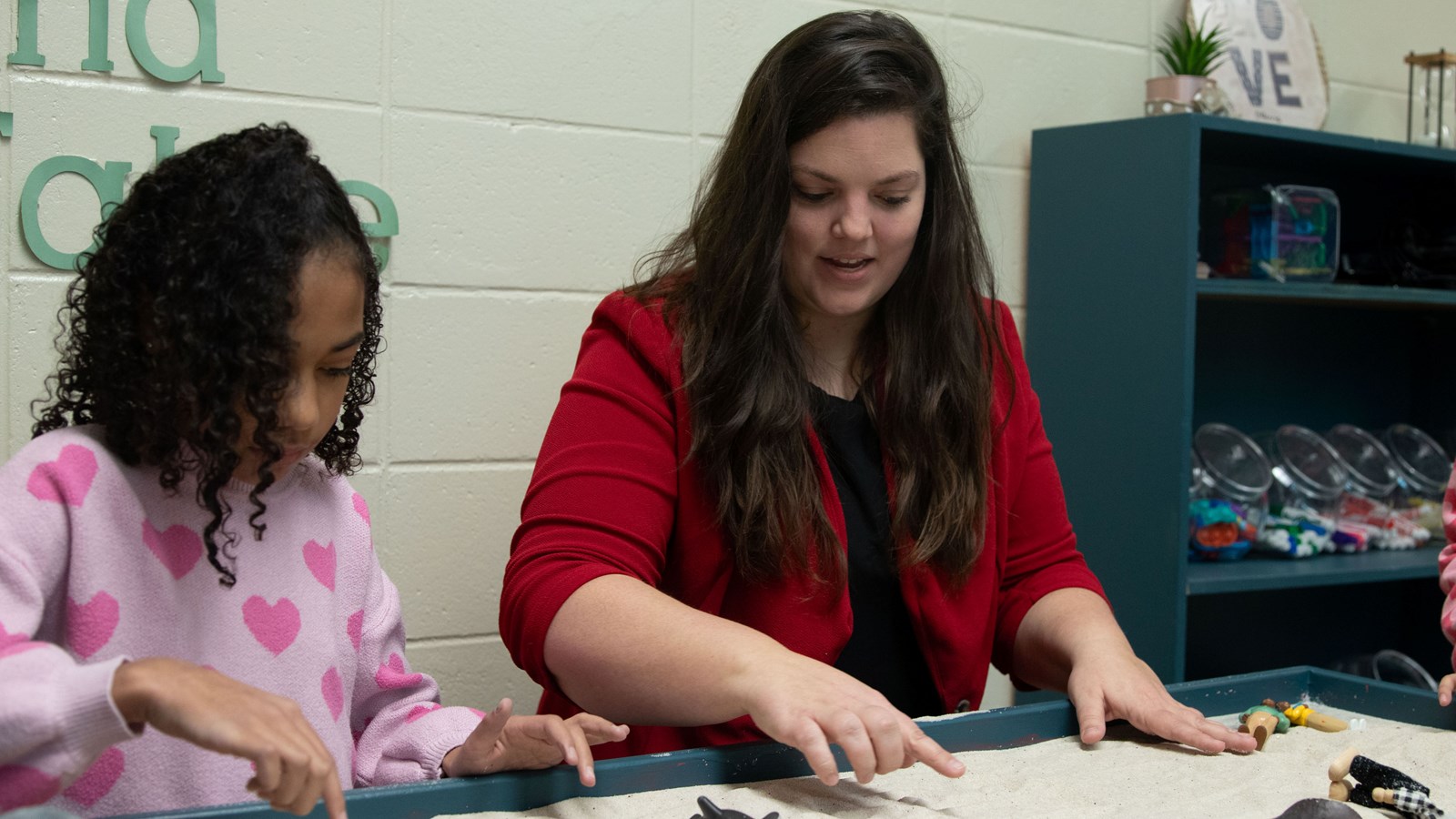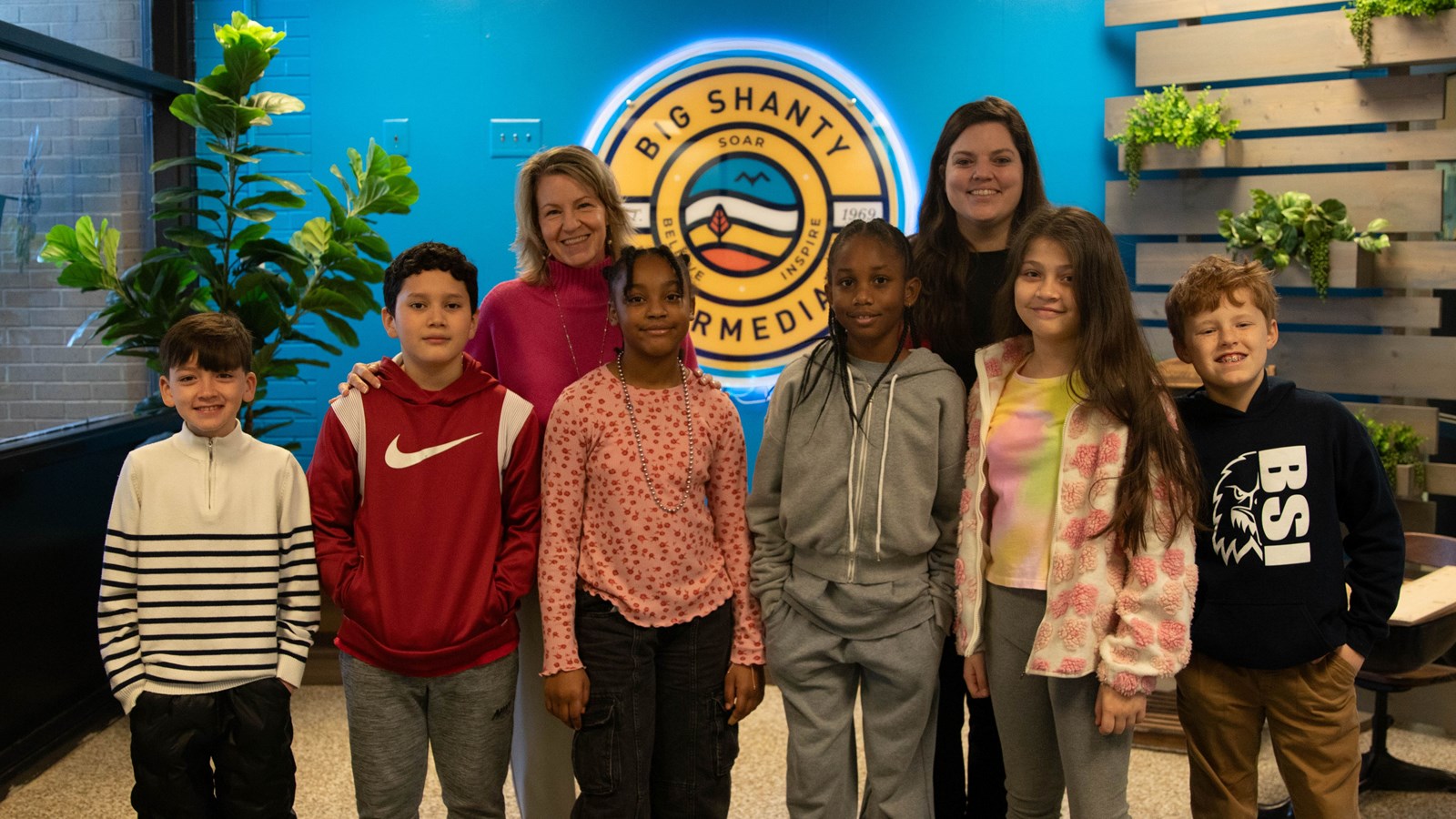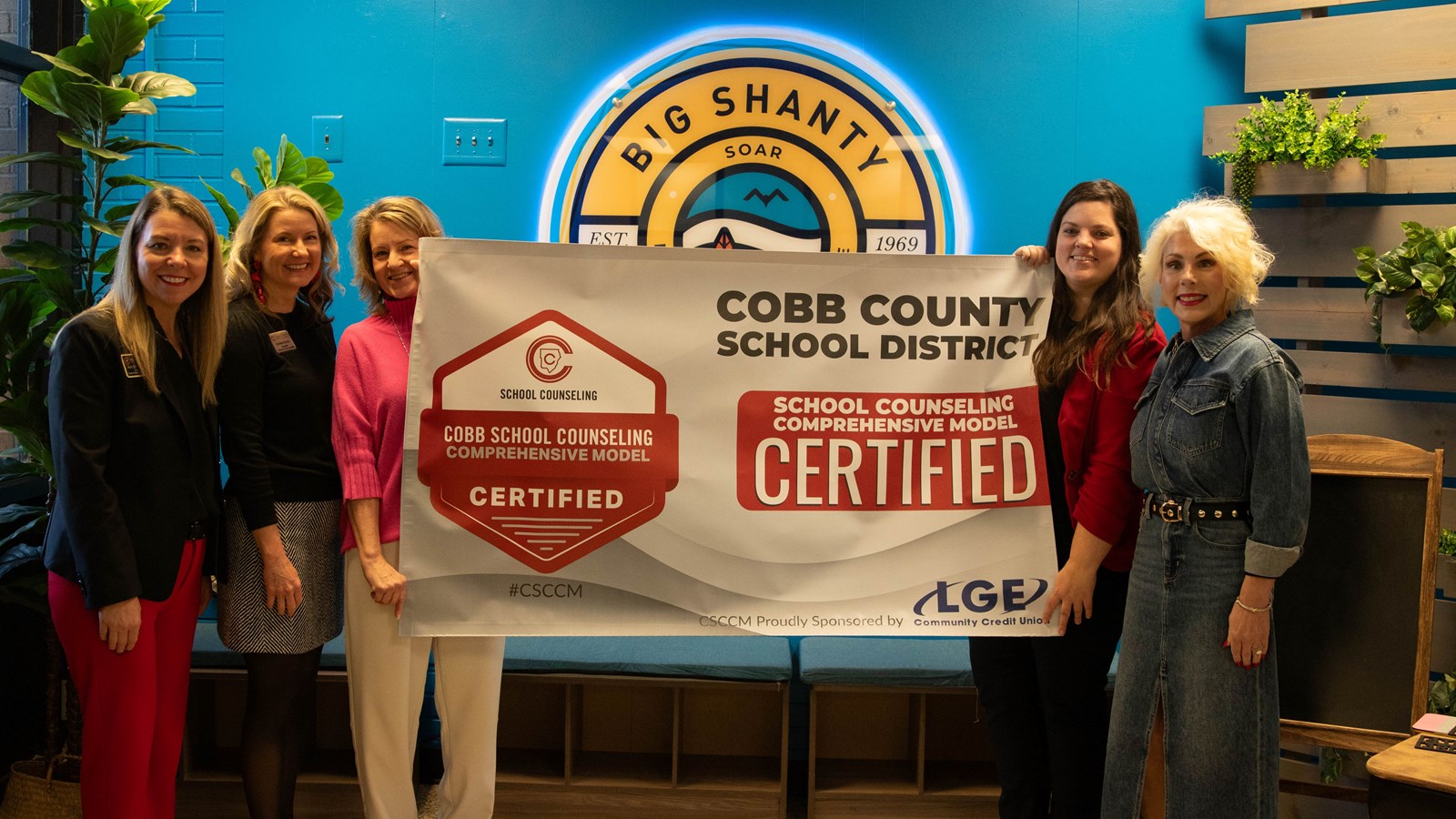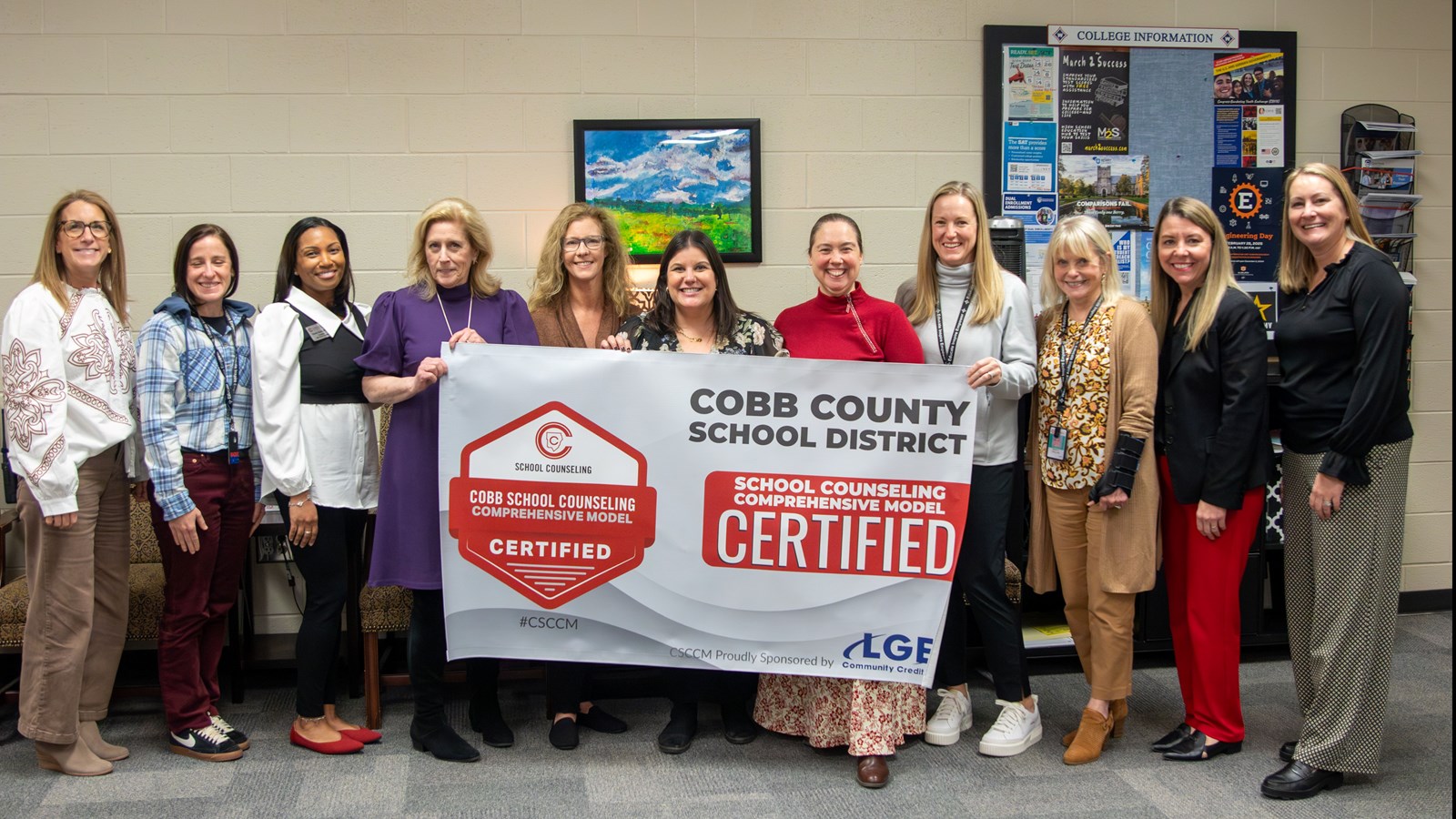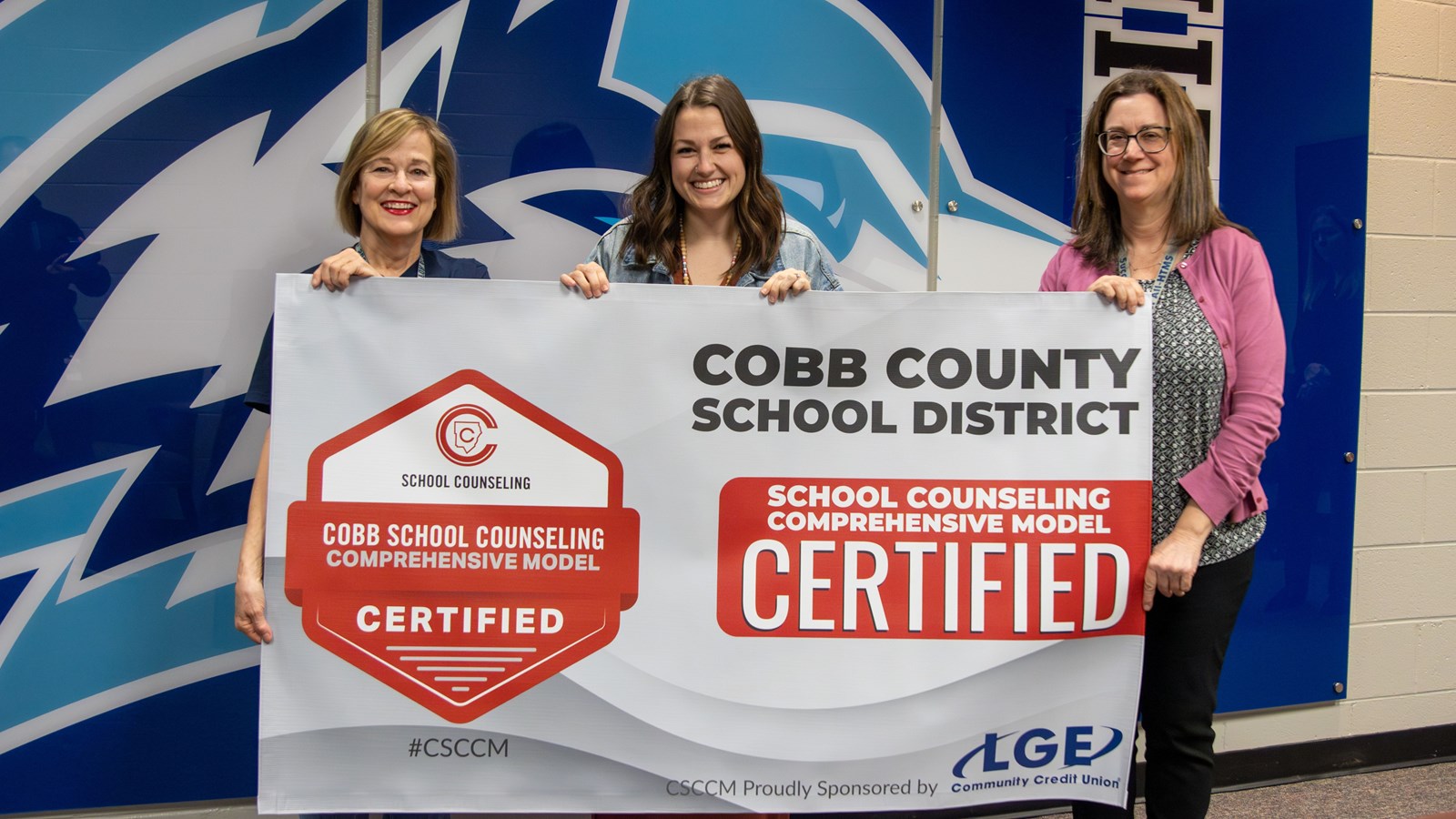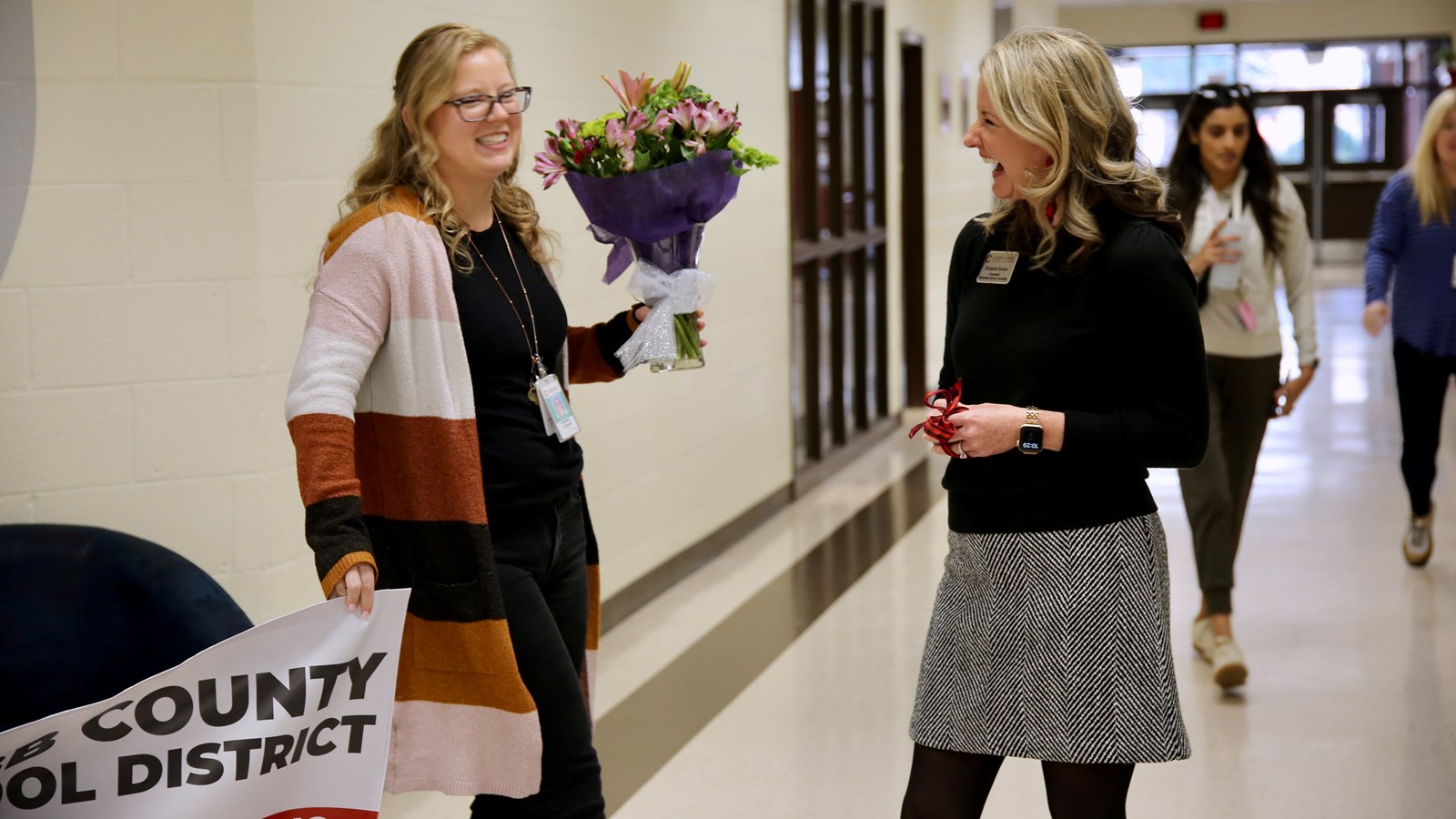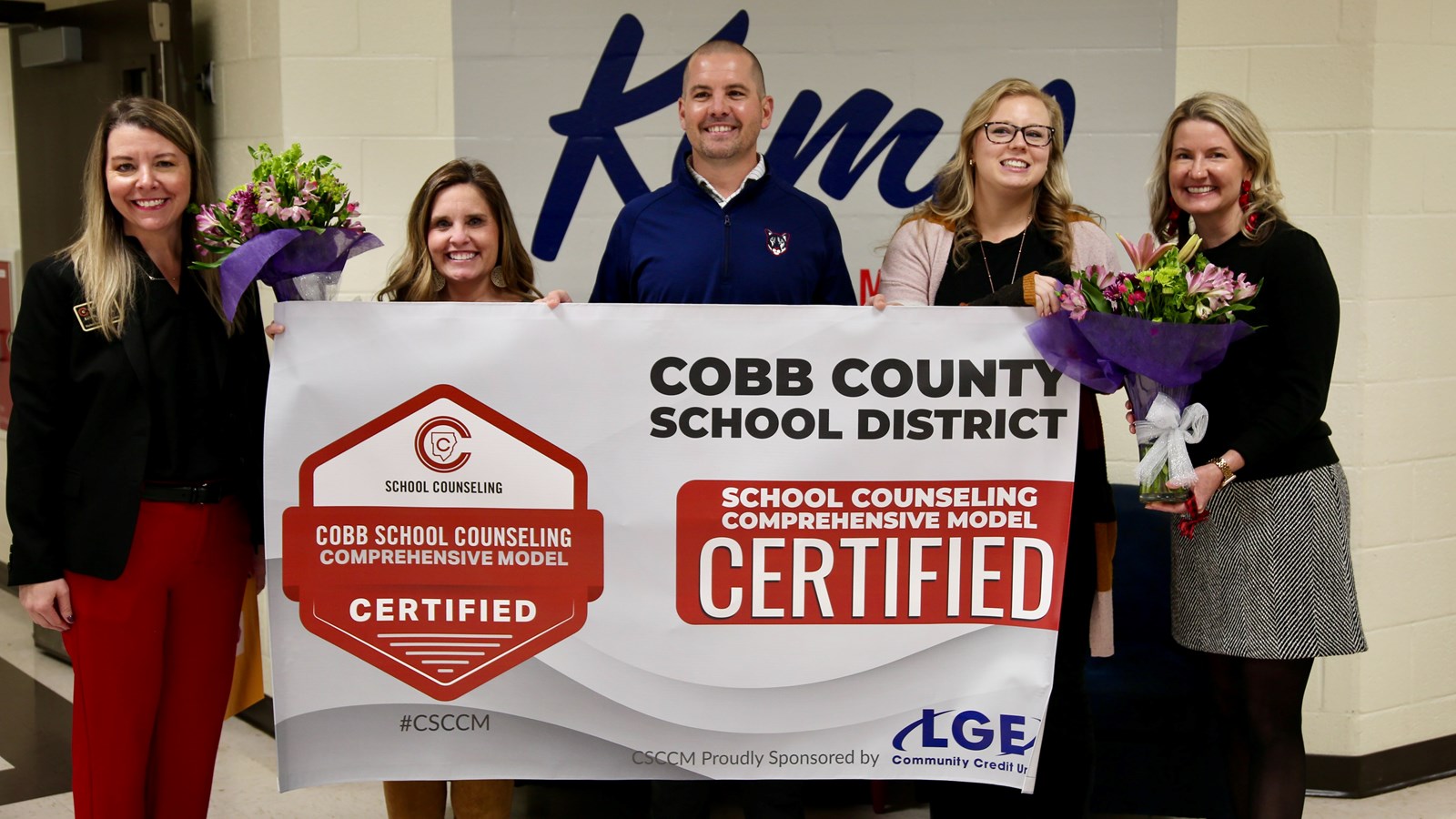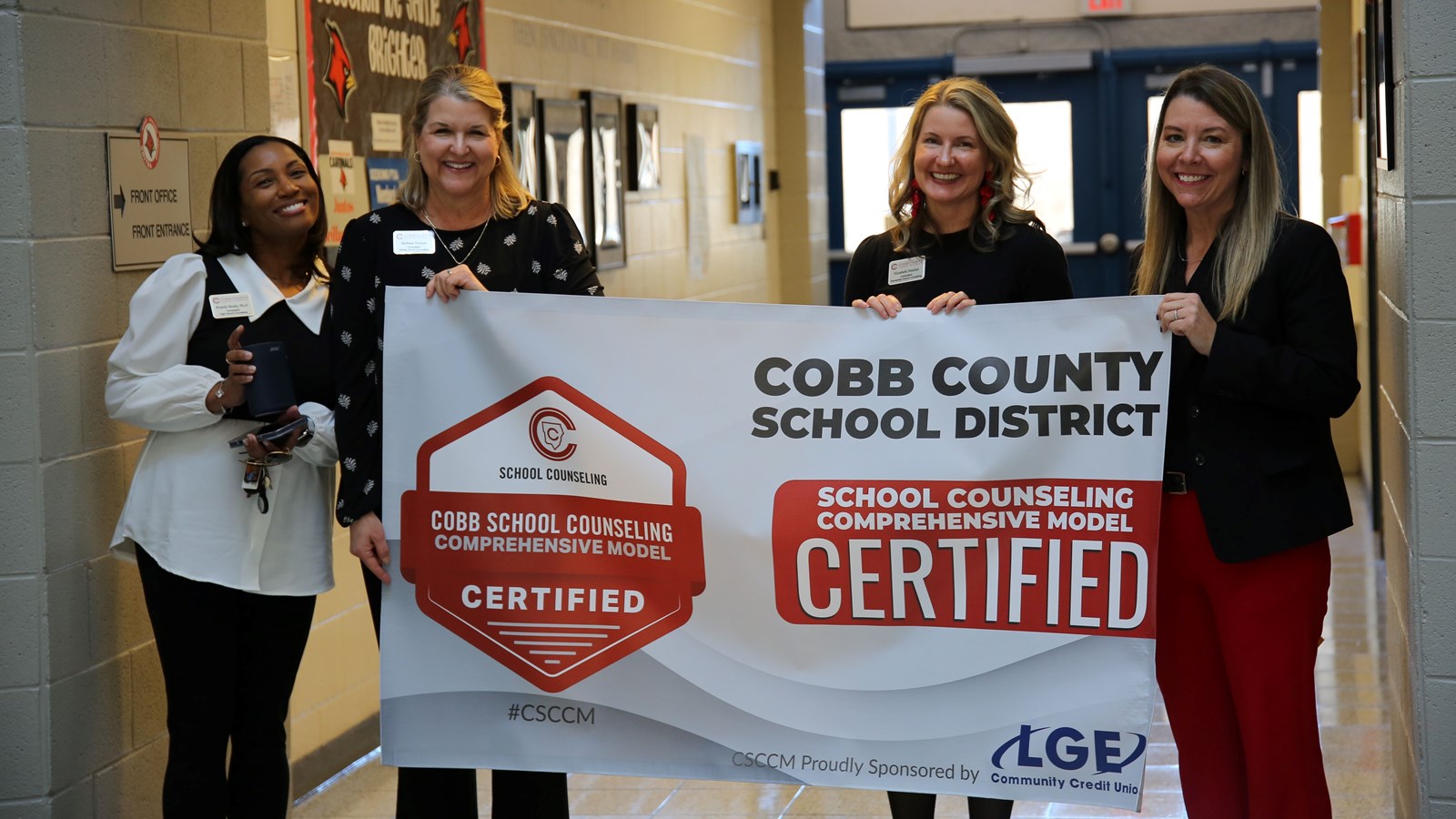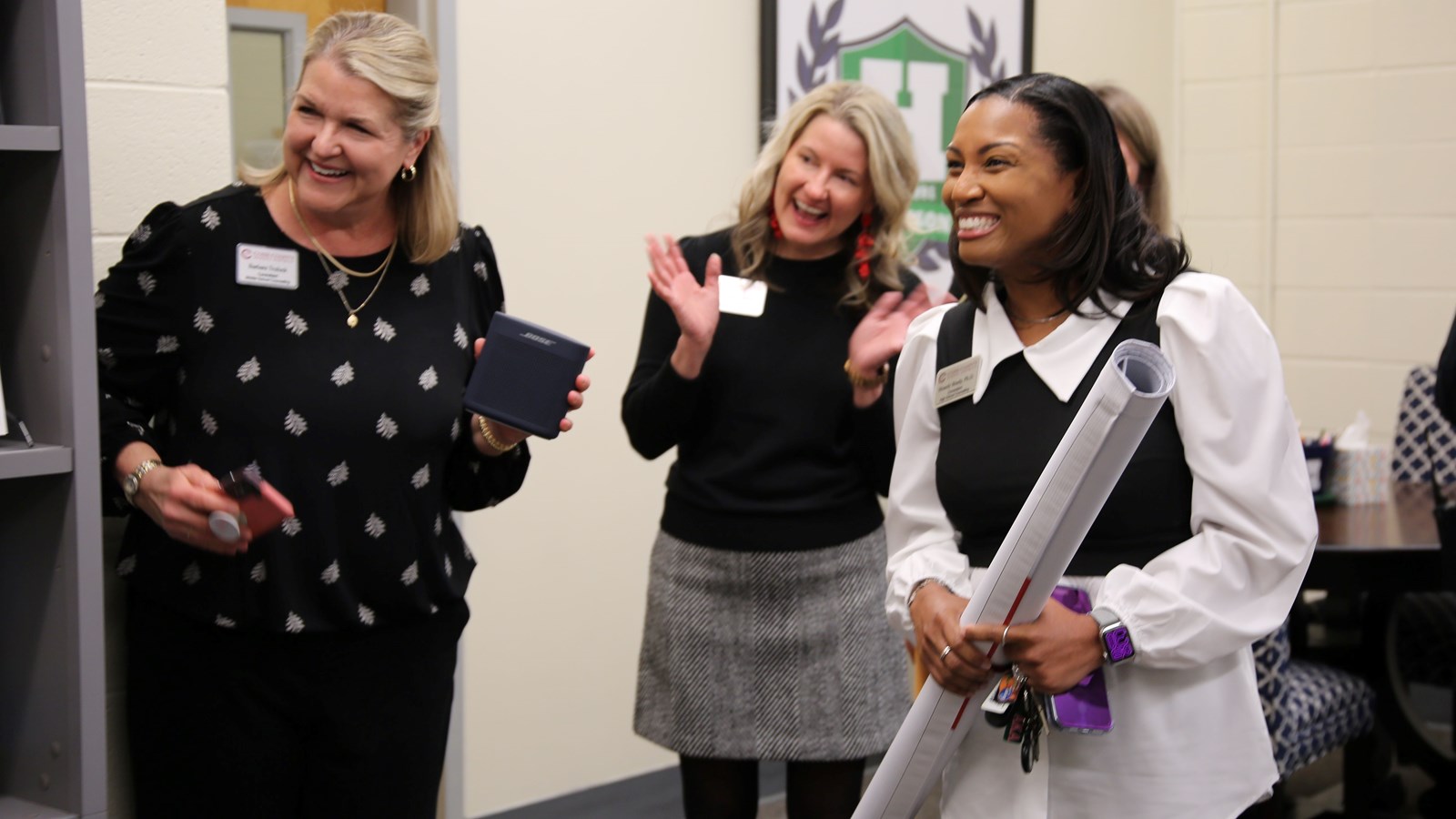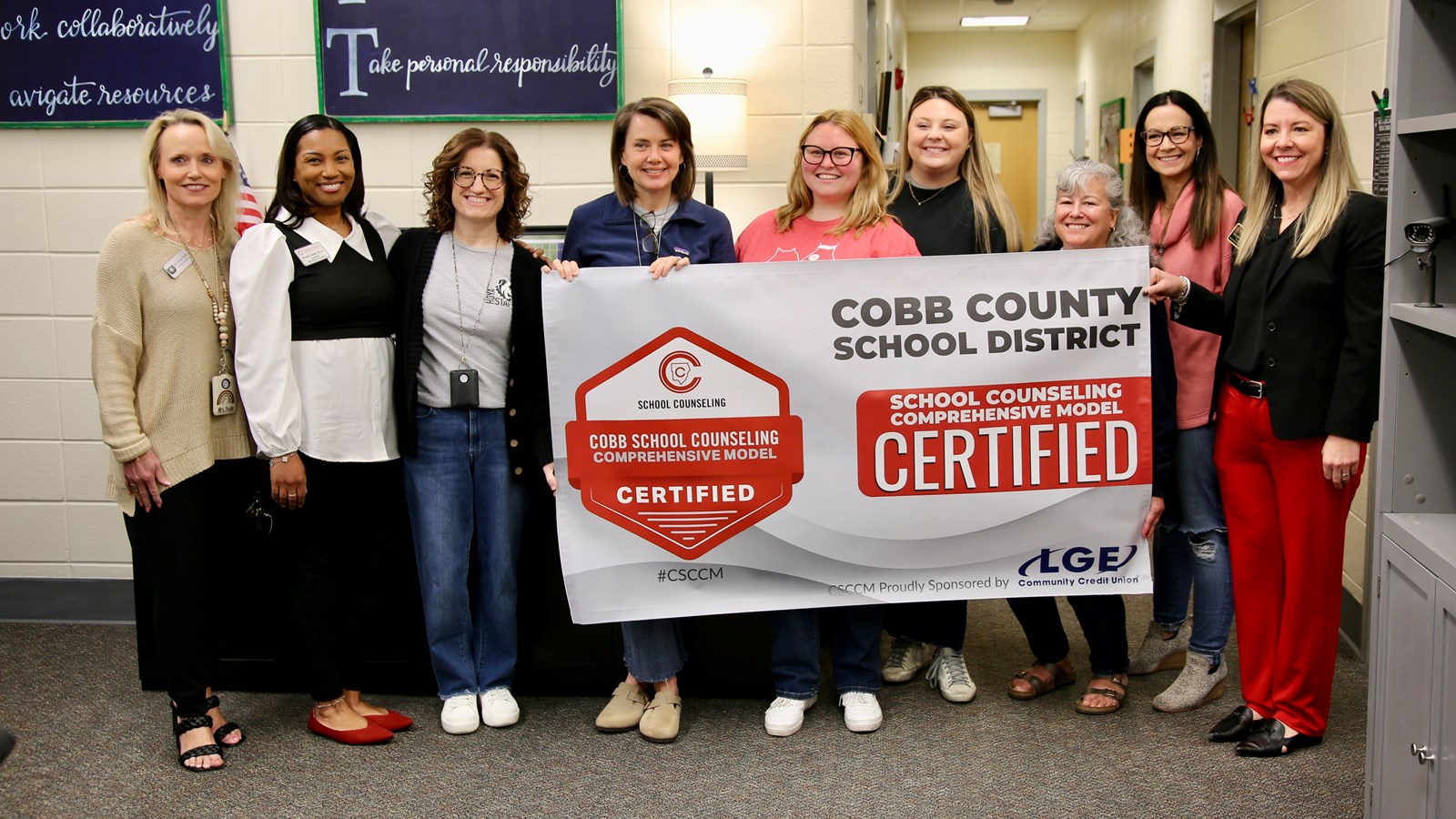Cobb School Counselors Recognized for Outstanding Student Support
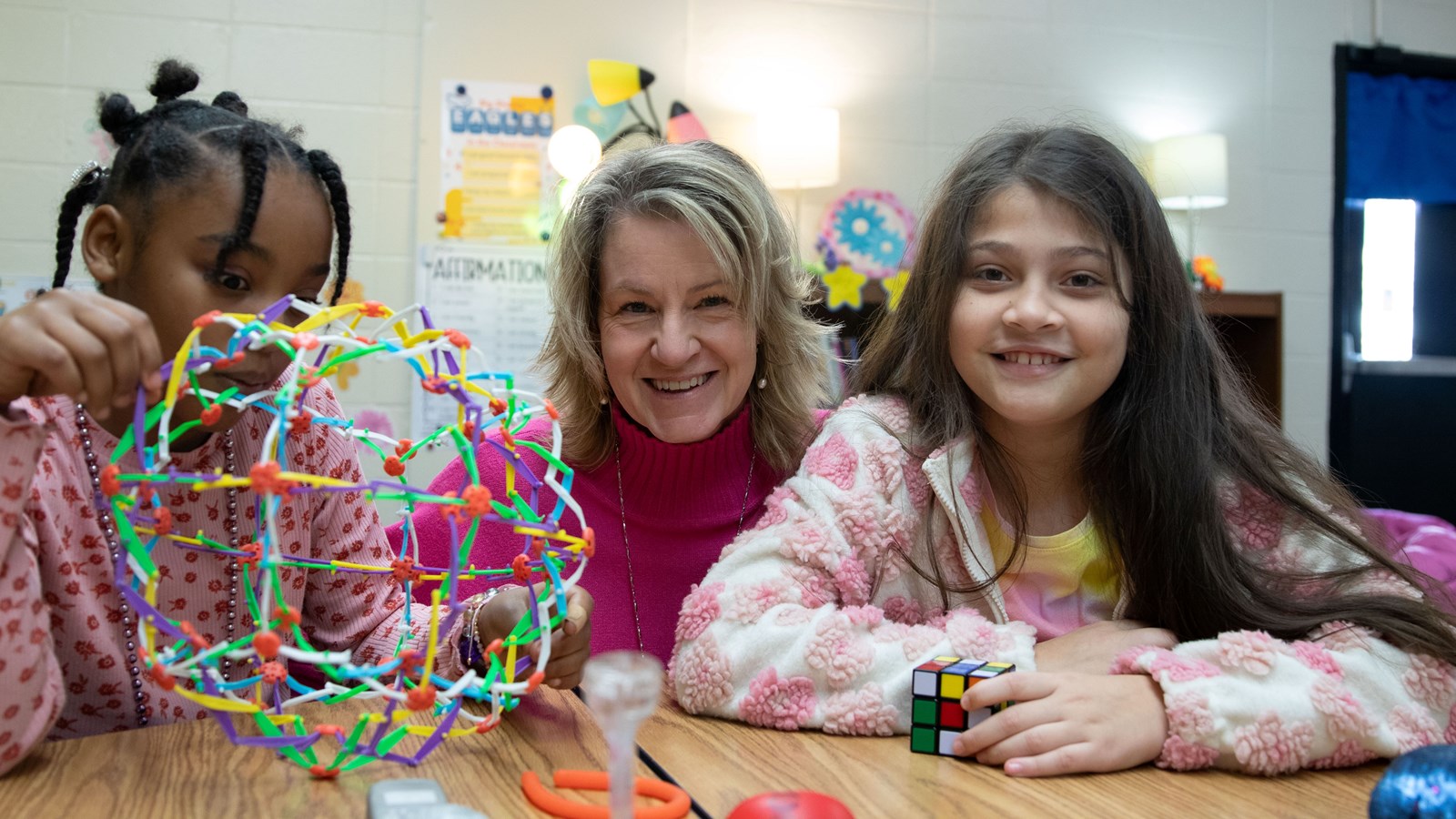
Six Cobb schools kicked off National School Counseling Week by earning top honors for their exceptional school counseling programs. These schools exemplify the power of strong student support, reflecting this year’s theme: “School Counseling: Helping Students Thrive.”
The following schools earned the prestigious Cobb School Counseling Comprehensive Model Certification (CSCCM): Big Shanty Intermediate School, Kemp Elementary School, Hightower Trail Middle School, Smitha Middle School, Harrison High School, and Walton High School.
From reducing discipline referrals to increasing student achievement, these schools have implemented innovative programs to ensure students feel supported, engaged, and equipped for success. They are examples of how school counseling is helping students thrive.
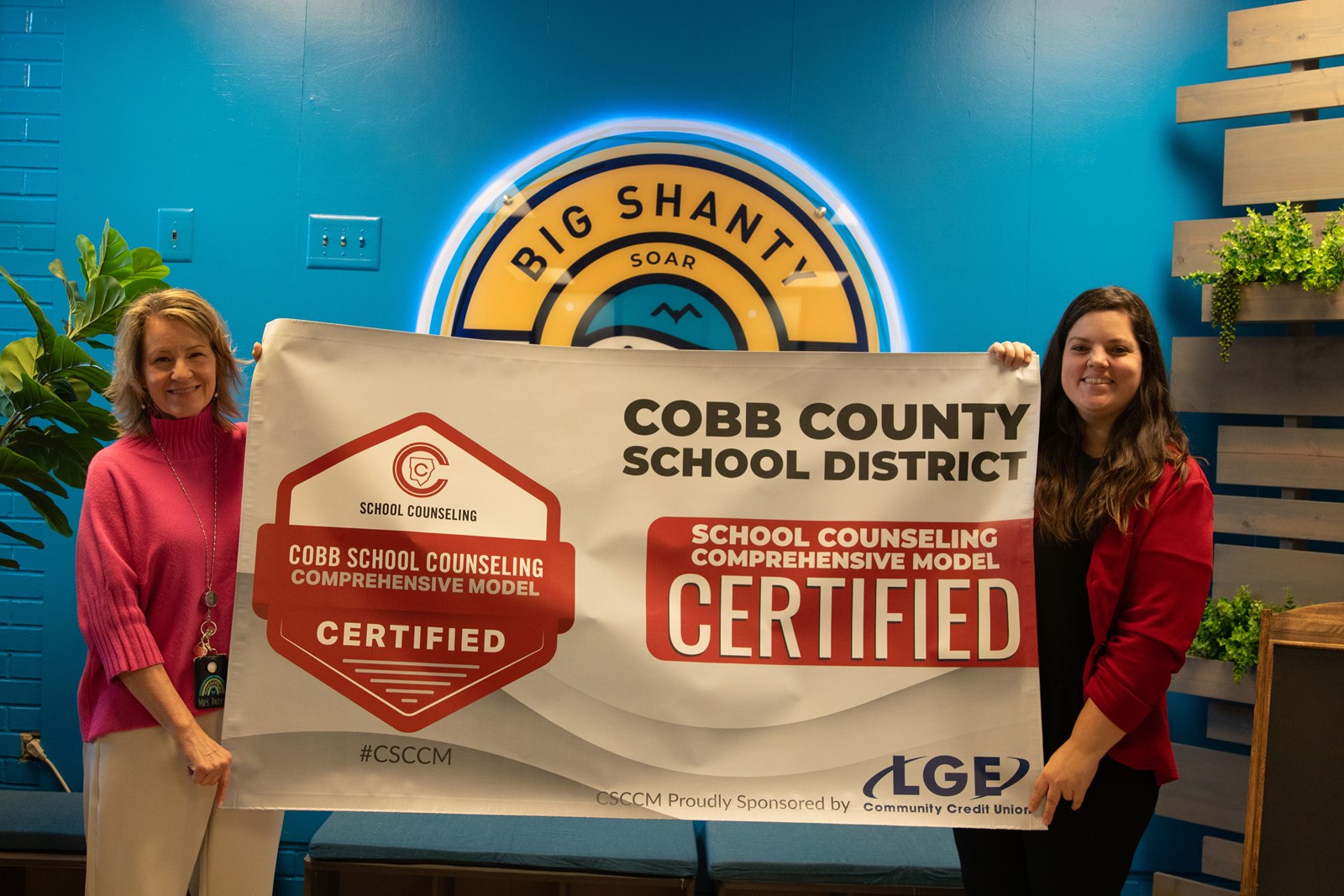
Big Shanty Intermediate: Helping Students Build Essential Skills
School counselors Daniella Mabeus and Beth Parker took a proactive approach to boosting student success by focusing on self-regulation strategies to reduce discipline referrals and close the achievement gap for 5th-grade students. Their ambitious initiative delivered classroom lessons on self-regulation, helping students build essential personal skills. Their small group intervention focused on fostering a growth mindset and teaching stress management techniques. The counselors introduced the “Stop, Think, Act” method of self-regulation, which encouraged students to slow down and make thoughtful decisions. Partnering with the school’s PBIS team, they also implemented a positive reward system to reinforce improved behavior.
The impact? A remarkable 50% drop in discipline referrals among participating 5th graders!
Kemp Elementary: Strengthening School Community
At Kemp, school counselors Katie Lunsford and Michelle Stevens introduced a Morning Meeting program to reduce discipline referrals by helping teachers build a community centered around positive behavior traits. Through engaging classroom lessons on active listening and conflict resolution, they helped students develop essential social skills. Their "Terrific Kids" small group intervention provided additional friendship-building strategies for 4th and 5th graders that promoted respect and teamwork.
The life skills the Kemp students developed through this intervention led to a 32% reduction in discipline referrals. 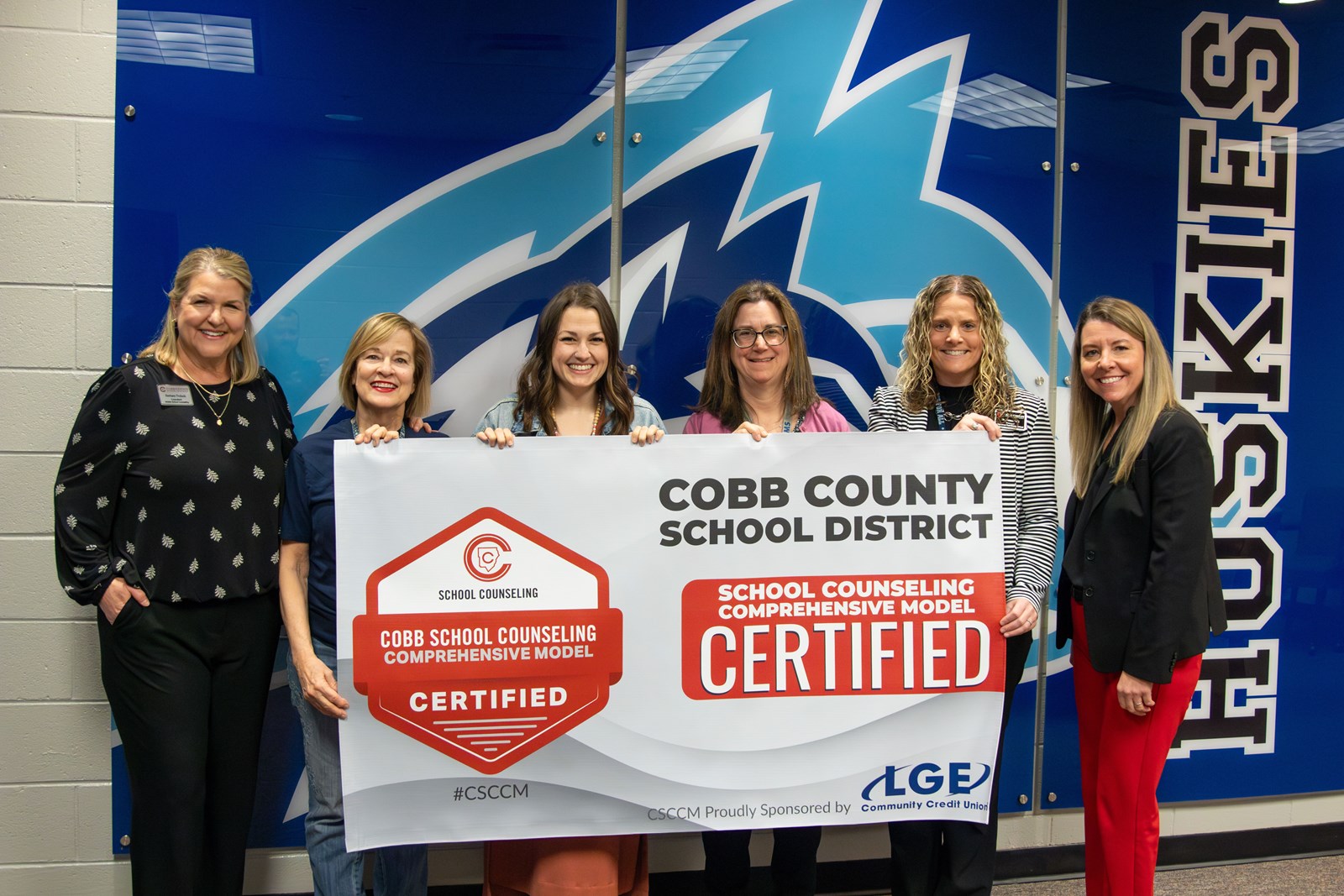
Hightower Trail Middle: Promoting Respect and Kindness
School counselors Suzanne Barber, Sydney Brooks, and Lara Salzman expanded their Preferred Adult Listener (PAL) program to address a growing concern—peer conflict. Their "Respecting Differences" and "Expect Respect" lessons encouraged students to embrace empathy and kindness, while the PATH student leadership group reinforced these values schoolwide, creating an environment of compassion for all students. Additionally, the counselors engaged parents with activities like "Coffee with the Counselors" and sent home "Family Table Talk" topics for teens.
The counselors’ efforts contributed to a 33% decline in disciplinary infractions and a more positive school climate.
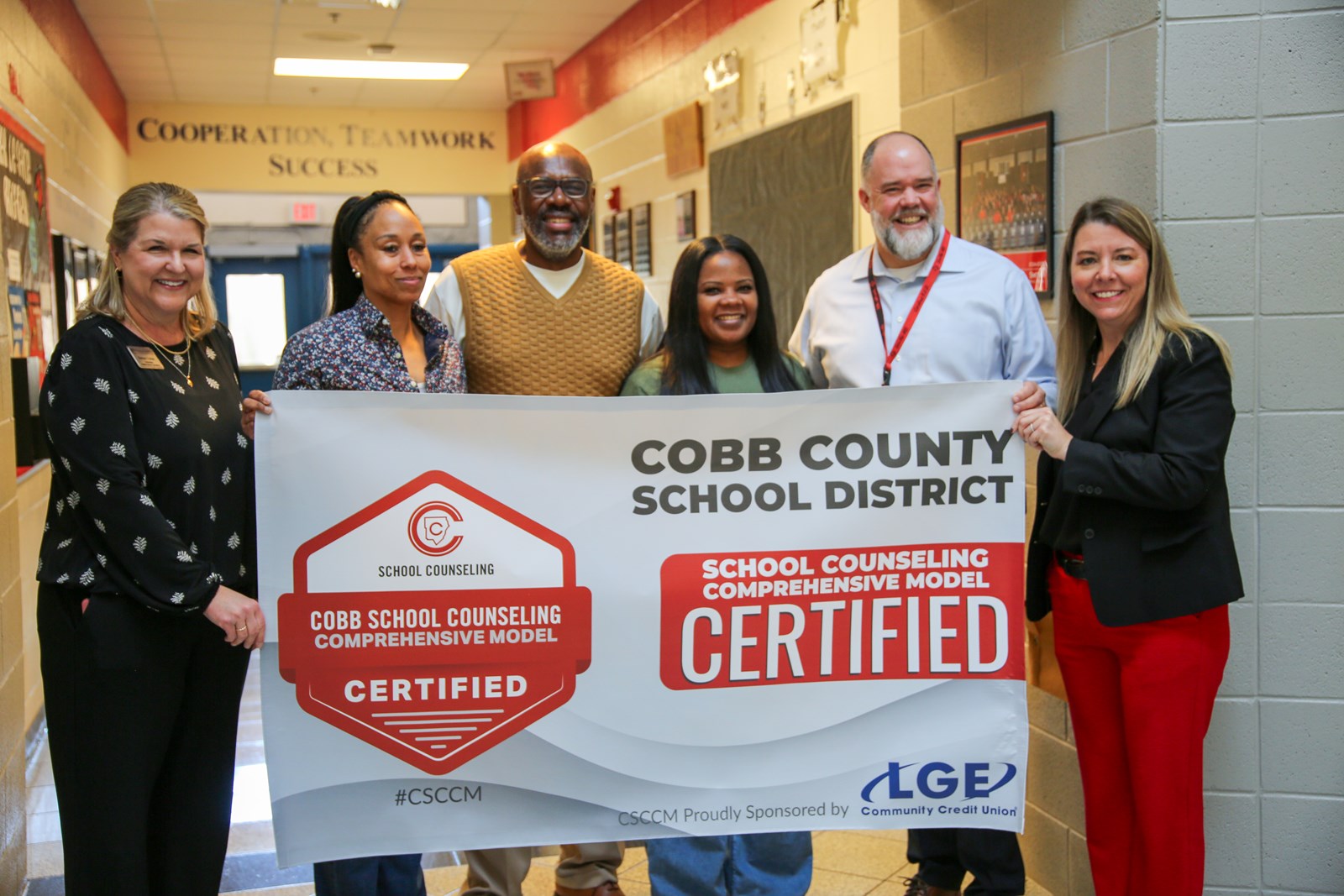 Smitha Middle: Reducing Discipline Referrals and Boosting Success
Smitha Middle: Reducing Discipline Referrals and Boosting Success
Recognizing an increase in discipline referrals since the pandemic and its impact on student achievement, Smitha's counseling team—Nichole McCroskey, Michael Stokes, and Charkeshia Toatley—designed a closing-the-gap intervention targeting students in grades 6-8. They taught "Healthy Friendships and Conflict Resolution Skills" lessons, introducing the Zones of Regulation to help students manage strong emotions. Additionally, through their “Stress Busters” small groups, students learned about the impact of social media on friendships and gained valuable stress management strategies.
Their efforts paid off, with a 34% decrease in discipline referrals and notable academic improvements for their small group students and students most in need of support.
Harrison High: Helping Freshmen Stay on Track
The Harrison school counseling team—Katie Barnes, Tammy Campbell, Jason Evans, Gillian Moody, and Ajaye Schmit—focused on supporting student success, closing achievement gaps, and improving graduation rates for 9th-grade Hispanic students who were off track for graduation. They also met with 9th-grade students in the Freshman Minds small group intervention to help them set short—and long-term goals and boost motivation. The team worked closely with families, providing essential information about graduation requirements, tutoring hours, and college readiness.
As a result, not only did students report a stronger connection to school and improved academic skills, but Hispanic first-time 9th graders also saw a remarkable 77% increase in passing rates for English, Math, and Science.
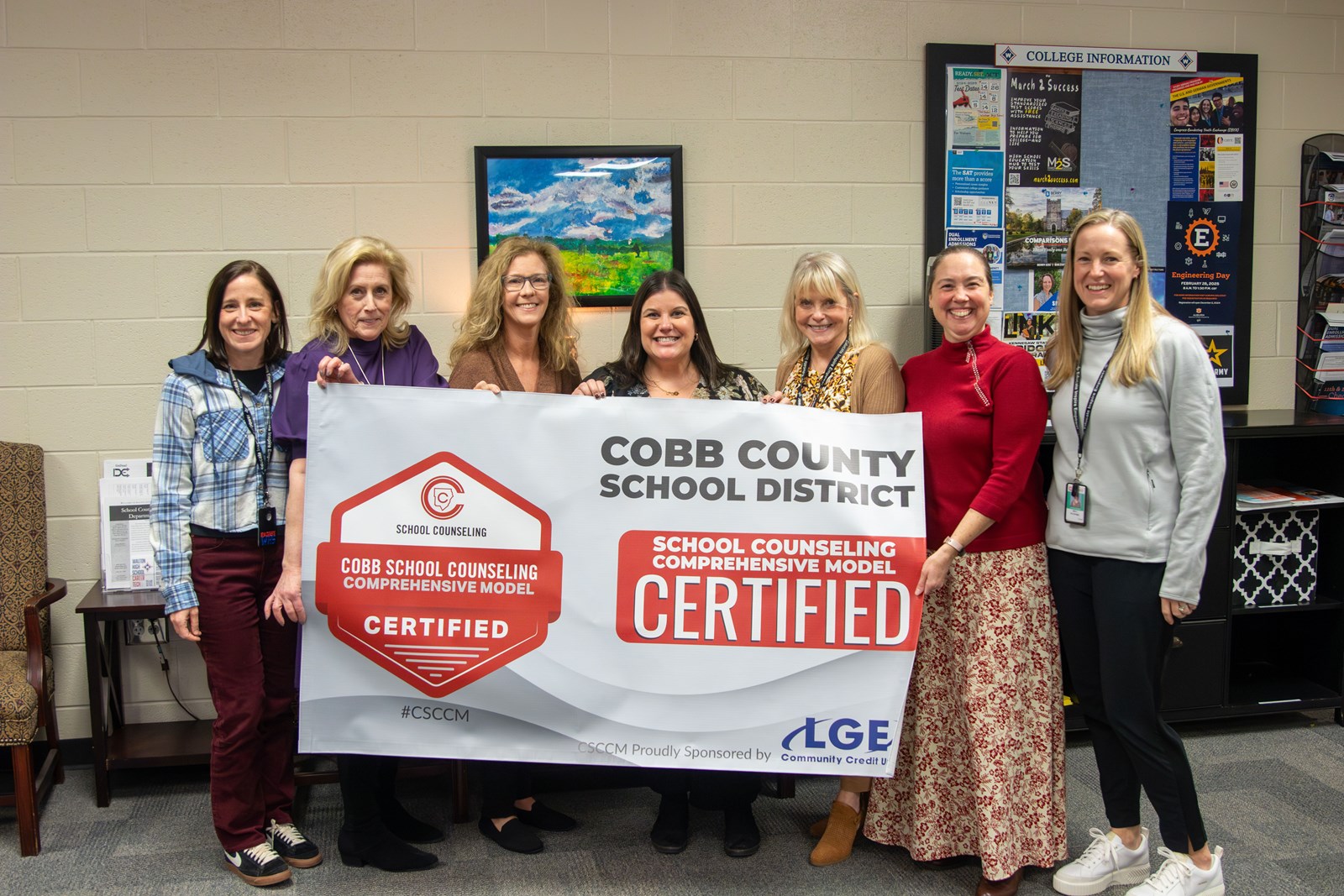
Walton High School: Supporting English Language Learners
Walton school counselors Betsy Alpert, Laura Clary, Donna Dunham, Rebecca England, Lisa Fay, Tina Harwood, and Erica Watford worked to close the achievement gap for 10th and 11th-grade English Language Learners (ELL) by improving their End of Course (EOC) exam passing rates. With the goal of boosting both course credit and graduation rates for these students, their "Planning for Success" initiative educated all students on the key factors needed to succeed in high school and beyond. The team incorporated essential EOC information into presentations for students and families and teaching strategies to help students master the exam. In addition, their small group intervention focused on building test-taking and time-management skills for ELL students.
Thanks to the targeted support, students in the intervention program saw a remarkable 60% increase in students achieving Proficient Learner status on the EOC exams.

